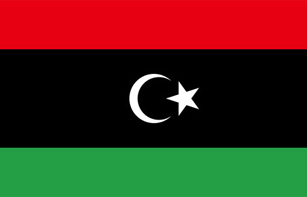
Feature Story
Libya: UNAIDS works with National Transitional Council to rebuild the country’s AIDS response
17 February 2012
17 February 2012 17 February 2012
As Libya celebrates the first anniversary of the 17 February revolution, UNAIDS together with the governing National Transitional Council are putting the building blocks in place to rejuvenate the country’s AIDS response.
Following UNAIDS Executive Director meeting with the Libyan Deputy Minister of Health Dr. Adel M. Abushoffa, a short term plan has been set up for the country’s AIDS response. The foundation has also been laid to the development of a comprehensive national strategic plan on AIDS.
In collaboration with the World Health Organization (WHO), UNAIDS is providing technical guidance to the government through a resident UNAIDS Senior Advisor to monitor the HIV epidemic, identify priorities and together with the government identify the main gaps in the response.
In the short term, the Libya has requested UNAIDS to support the procurement of antiretroviral (ARV) treatment drugs for around 3000 people living with HIV while working in parallel to reestablish the ARV supply and procurement system that has been interrupted for more than six months. The ARVs are now being shipped to the country.
UNAIDS is taking the lead in coordinating the UN system’s response to AIDS in Libya and new partnerships have been established with key donors such as the European Commission.
Some of the critical long term issues that need attention include strengthening the human resource base of the health system and ensuring that healthcare workers have the skills to provide HIV prevention and treatment services.
The AIDS response also has to focus on reducing stigma and discrimination, especially by health workers, decentralization of HIV-related services, reaching people at increased risk of HIV such as sex workers, men who have sex with men, people who inject drugs as well as migrants and displaced people. The long term national strategic plan will focus on building the capacity of civil society organizations to implement HIV prevention outreach programmes.
As a first step to developing evidence informed AIDS response, Libya, in collaboration with WHO and UNAIDS, is strengthening its HIV surveillance system. Information about the epidemiological situation in Libya is sparse, yet preliminary assessments indicate a severe epidemic among people who inject drugs as well as anecdotal information about HIV infection among sex workers and sex trade on migration routes in the south of the country.



